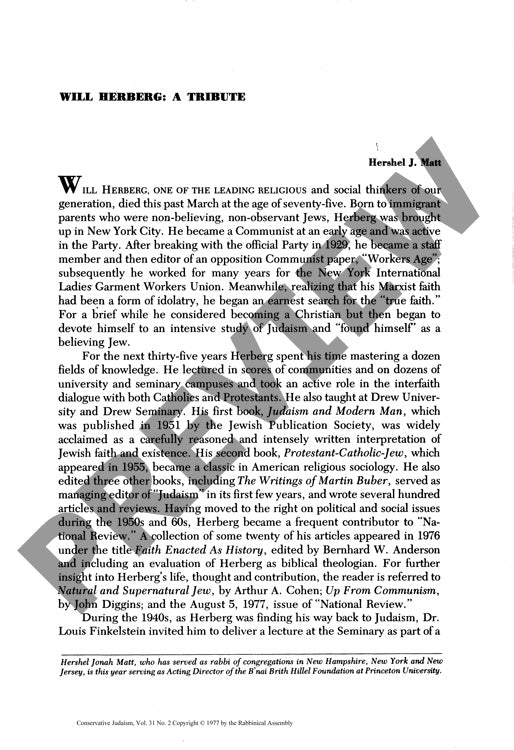Will Herberg a Tribute
Couldn't load pickup availability
Will Herberg's transformation from Communist activist to influential Jewish theologian exemplifies the dynamic religious landscape of mid-twentieth century America. Through newly examined personal correspondence with Seminary students, Herberg (1901-1977) emerges as a sophisticated architect of Jewish-Christian dialogue and moral theology. His letters reveal a thinker who rejected philosophical absolutism in favor of covenantal theology, while grappling with fundamental questions of biblical interpretation, interfaith relations, and the nature of religious experience. The analysis of these private exchanges, combined with biographical research, illuminates Herberg's nuanced positions on divine anthropopathism, the theological significance of Israel's rejection of Christianity, and the essential role of experiential faith. As author of "Judaism and Modern Man" (1951) and the groundbreaking "Protestant-Catholic-Jew" (1955), Herberg shaped American religious discourse through his teaching at Drew University, editorial work, and extensive publications in both Jewish and conservative outlets. His emphasis on moral complexity and the necessity of continuous repentance resonated deeply with students and scholars alike, establishing him as a pivotal figure in American religious thought and interfaith understanding.

More Information
-
Physical Description
-
Publication Information
Published 1977
ISBN
-
Publication Credits
Hershel Matt

